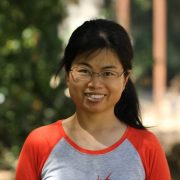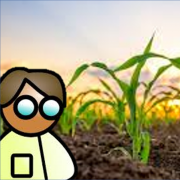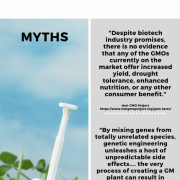Informational Interview with Dr. Alexandra Erwin, Director of Talent Development at BioKansas
By Aleah Henderson-Carter, Conviron Scholar
Alex Erwin is a recent graduate from the University of Kansas Ecology and Evolutionary Biology department. She is now a member of staff at BioKansas, a bioscience networking organization which represents a variety of biotechnology companies and academic institutions across the state of Kansas. Alex is the director of the Talent Development & STEMM Education department.
Me: What does your job involve at BioKansas?
Alex: Scientific workforce development. My role is in the organization is to facilitate match-ups between industry needs and the talent within the state. Part of my work is also helping students prepare for the workforce by enhancing professional development skills.
Me: What skills are needed for your work?
Alex: Effective communications skills are critical. Much of what I do involves sending emails and facilitating new partnerships and collaborations. Being able to be concise and clear in your messaging is very important.
Also, being able to adjust to different timelines is another skill I had to acquire. Often, in academia, the progression and completion of project goals or a paper is a bit more flexible or can be drawn-out for quality purposes. The mentality of a perfectionist is encouraged. What you will find quite often in industry positions is that your work timelines or project deadlines need to be met within a specific financial quarter.
Me: What do you like most about what you do?
Alex: I love interacting with science industry more broadly. I’ve also really enjoyed going to labs and companies to observe the applied aspect of research. What’s especially rewarding for me is interacting with government officials and administrators to discuss the importance of life science and its effects on health, jobs, and the economy.
Me: What preparation was required to obtain your job?
Alex: During my transition from graduate school to my current position, I made a plan with my mentor and future employer to fulfill necessary requirements. I also had to be upfront about certain constraints while transitioning.
Me: Was it during this time that you had to learn how to negotiate? This isn’t a traditional skill that’s learned in grad school.
Alex: You’re right! I attended a workshop to learn how to negotiate effectively before I started my position. It’s a skill that you have to practice. I’ve practiced negotiating for salary, vacation time, technology, and things that are outside of salary such as professional development opportunities. It gets easier the more experience you gain.
Me: What are some of the biggest challenges that you’ve faced for your position?
Alex: My position is BioKansas is unique. The role is new. So, I didn’t have a benchmark to compare myself with in order to gauge whether or not I was doing a good job. In academia, there are familiar metrics by which to judge your output: papers, presentations, etc. I didn’t have that. I’ve also struggled to get out of the “perfectionist mindset” – to learn not to get overwhelmed by addressing every little detail.
Me: What advice would you give to someone trying to make a decision between a career in academia and industry?
Alex: Try, learn, experience as much as you can. Be honest with yourself about your likes and dislikes. If you’re unsure about industry jobs then maybe try doing internships, job shadowing, or informational interviews. Finds ways to learn about different opportunities.







